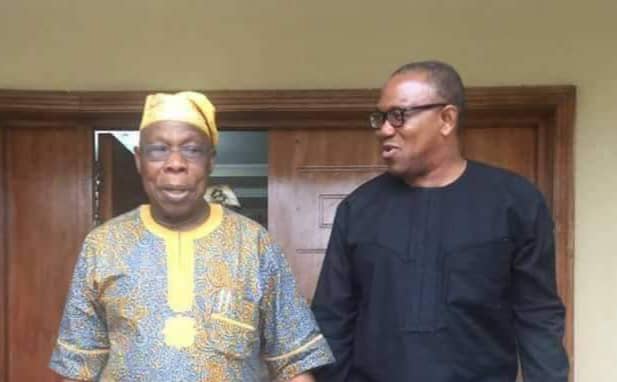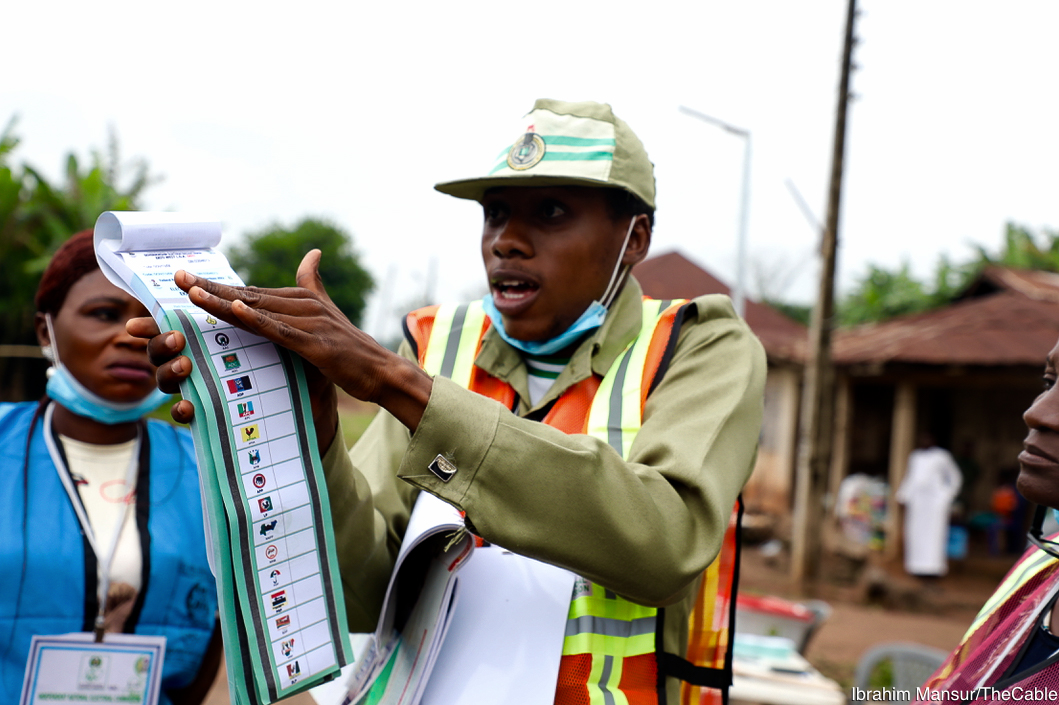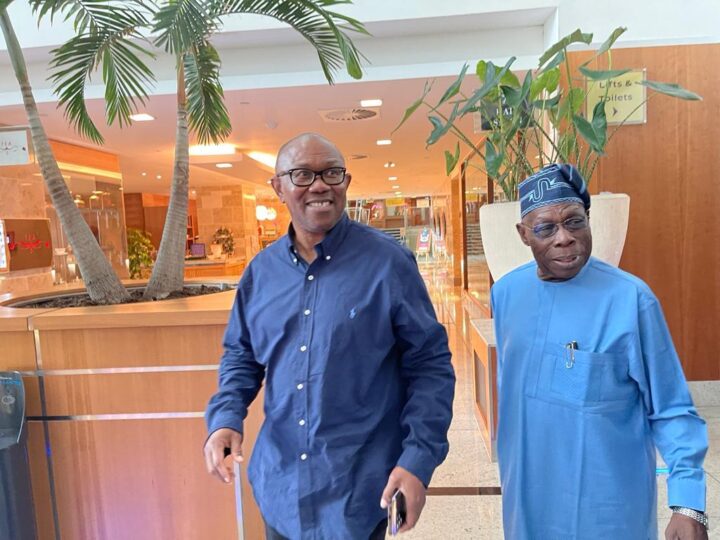In determining the future prices of shares and therefore the prices of options (financial instruments) written on such shares, commodities or other instruments, we were taught Ito’s Lemma at the Masters level. It all sounded so strange in the beginning and indeed the professor did not explain what a ‘lemma’ was, or who Ito was. I was to later find out that there was a Professor Kiyoshi Ito, who had arrived at a formula named ‘Ito’s Lemma’, so called because he actually could not prove or remember how he arrived at that conclusion. Lemma.
You know, we all have dilemmas from time to time i.e two lemmas. As Professor Ito could not determine how he arrived at his formula, so also are we often nonplussed between taking a decision or not, especially where our choice will have consequences. In mathematics, a lemma is a minor, proven proposition which derives its importance from the theorem it aims to prove. The word derives from Ancient Greek, meaning ‘gift’ or ‘bribe’. Anyway, to continue the story, I remember that Ito’s Lemma (that formula), was combined with the formula for the dispersal of heat or pollen (from physics), and through some mathematical abracadabra (algebra no doubt), what is known as the Black-Scholes Formula was derived. This formula was used in the pricing of those ‘options’ and was indeed (perhaps remains so because academia hardly changes course even in the face of cataclysms), an almighty formula. Almighty, because the trio of Fischer Black, Myron Scholes and Robert Merton would in 1997 be jointly awarded a Nobel Prize for deriving this same formula (off the back of a lemma – an inexplicable mathematical theory). Suffice it to say that just a year after this Nobel Prize, the super Hedge Fund owned by these gurus, called Long Term Capital Management, collapsed, losing $4.6 billion, after receiving a Federal Reserve Bank-brokered $3.6 billion bailout from 14 top American banks.
I believe strongly that most people have not bothered to understudy the business of central banks and their challenges. People think it is easy work. Anyone from the comfort of their sitting rooms or beer parlours could do a jolly great work of being a central bank governor, but I don’t think it’s that easy. Indeed I think it’s a curse. Well, in university (first-degree level), we were introduced to the ‘unholy trinity’, also known as the ‘impossible trilemma’. We were told that this is a constant problem that all central banks – and indeed economies – must grapple with. This triumvirate includes:
- A fixed foreign exchange rate
- Free capital movement (absence of capital controls)
- Independent monetary policy
What this means is that if a country wishes to fix its exchange rate or defend it, it must have to dispense with one of the other two. Only two policy positions can be taken while the third must be let go. A country like Nigeria is currently straddling between managing its foreign exchange rate and keeping control of monetary policy. We do not have free capital movement for now. This is the agony of many believers in a market-determined exchange rate – and indeed everything else in between.
Advertisement
Whereas there was never a point at which a consensus was reached that the principal duty of central banks is to achieve price stability, this has been generally agreed upon around the world. I believe this is also a product of the heady days when we thought we had conquered booms and busts, pre-the Great Recession of 2008-10. In those days we felt the financial markets had arrived and the upward trajectory was unstoppable. The same infusion of pure science into financial markets which were run by human beings with all the emotions and behavioural issues led to the crash. But human memory is fleeting, and no sooner than taxpayers’ monies were pumped to stabilise banks, carmakers and others who had professed crass capitalism, we all went back to the same delusional ideologies. I remember this was called “the privatisation of profits and socialization of losses” back in the day. So, whereas it is good to target price stability, I see no reason why a central bank cannot contextualise its priorities or pursue other goals within its ambit – in addition to price stability.
Milton Friedman, a famous monetarist and believer in perfect markets, popularized the idea of central banks setting out to target only inflation when he said that: “Inflation is always and everywhere a monetary phenomenon”, and that: “There is one and only one basic cause of inflation: too high a rate of growth in the quantity of money”. These famous statements however blindside us from other causes of inflation and indeed indoctrinates – almost hypnotises – our minds from roaming freely, seeking solutions. It sounds very much like what Margaret Thatcher used to say: “TINA – There is no alternative”. In economics though, there are always alternatives and different ways of doing things. And indeed, different ways of thinking. As Maynard Keynes’ ideas made a lot of sense and difference post World War II, only to be flawed later, so also Milton Friedman’s ideas make sense in an era, but must now be critiqued.
The stranglehold of neo-liberal economists on economic thought and academic pedagogy is what is still giving these otherwise dead ideas free rein. Many are fighting on the other side though, but their voices are drowned by the power of money. I recall what Professor Robert Simon said when I asked him in that seminar at Harvard Business School in 2009 about the relationship between the great university and Wall Street, given that most buildings on campus have been gifted them by Bloomberg, JPMorgan, Goldman Sachs and the rest. He said; “sometimes I’m at a loss, as to who dictates ideology, whether from Wall Street to Harvard, or Harvard to Wall Street”. It was a telling moment. He then went on to tell us how Professor Mike Jensen was booed out of class by students in the year 2000 as he went on and on about market perfection and the maximization of shareholder value even when some students had lost quite a bit of money in the dot-com crash. Jensen had to resign from Harvard.
Advertisement
Now, if the unholy trinity or impossible trilemma is basically about capital controls, exchange rates and monetary policy, where does inflation feature? Perhaps subsumed inside monetary policy. Should inflation not stand alone given its centrality (howbeit more recent), to central banking? I would wager instead that a central bank of a developing country has to juggle the following:
- Inflation
- Exchange rates
- Interest rates
- Banking sector stability
- Currency and Money Supply management
- Financial innovation for financial and economic inclusion
- Macroeconomic stability – including fiscal stability (developing country central banks cannot live in a cocoon)
- Maintenance of healthy foreign reserves for trade, emergency and economic growth and stability purposes.
There are more.
All of these must be kept handy and under control and like the management of the impossible trilemma, there is no way a central bank could control everything. Some have to be let go if you want to make a success of another. The CBN, today, struggles to manage our exchange rates but then came Covid, throwing every country into a serious quagmire, and then the inflation rate escaped. The monetary policy committee is today increasing interest rate levels with the hope of slowing down inflation. Constant increases in inflation then slow down the economy and in a few instances have precipitated economic recessions as it hurts companies – especially manufacturers. Should the CBN have folded its arms while inflation – mostly coming from the supply side – soared? Should we really allow forces of demand and supply to determine the value of our currency when inside the demand for US dollars in our country, we have a sizeable part coming from corrupt folks, kidnappers, and a thriving narcotics industry, who are fully dollarised? Should a central bank do nothing outside orthodoxy (what is inside the peer-reviewed, Wall-Street-sanctioned, and written-for-other-contexts textbooks), to curb excesses where it notices such? Is Nigeria now at par with the US and Europe such that we could copy and paste the same economic policies that operate in those climes?
These are the questions that people who criticise our CBN should ask themselves. I listen to many of them and I laugh because under their ideas, today the Naira will probably exchange at N5,000 to $1 and they will probably relocate abroad and laugh at the rest of us from there. Like has happened in the case of market collapses and poor taxpayers bailing out dapper-suited smart Alecs in Wall Street and Broadgate/Canary Wharf in London, without consequences, so also have many of these folks here never been punished for pushing Nigeria down the cliff with false promises since 1986 and again in 2016. Let it be known, that devaluing the naira has never brought one extra cent from anywhere into Nigeria.
Advertisement
Leave leemas, what about policy somersault?
Alan Greenspan was an oracle. That was a taciturn central bank governor…sorry reserve bank chairman. He was old, wizened and had seen all that needed to be seen. But he also had his umbilical cord buried in Wall Street, like his predecessor, Paul Volcker. Greenspan’s final ordeal was his belief that “markets will regulate themselves”. Self-regulation was of course a big myth sold by the smart Wall Street boys to old man Greenspan. By the time the markets melted down in 2008, he had to call in the treasury and Obama rolled out trillions of US dollars to bail out banks that were deemed too big to fail. The moral hazard driving sub-prime mortgages and the spurious Collateralized Debt Obligations (never mind, just another financial abracadabra) written on it, could not regulate itself. If capitalism was true to itself, those banks – including insurance companies like AIG, carmakers in Detroit and beyond, defence industry behemoths and aeroplane manufacturers, should have been allowed to die a natural death as a result of the bad bets placed by their management and owners.
This calls to mind another problem that central banks grapple with. Central banking is a game whereby you keep playing your hand very confidently, but you must be keen-minded enough to change tack and head the other way tomorrow. A central bank can pursue a policy of cutting interest rates to stimulate the economy at some point, and then changing tack to start contracting the economy by increasing interest rates after a while. A central bank can see every reason to pursue a strong exchange rate for a spell and then decide, based on its own statistics and strategy for the economy, to pursue a weak exchange rate.
What we have found in our society today is that there is much heckling but little understanding. We now see a situation where a central bank cannot even manage currency without hoopla, looking as if we shall never again be able to change our currency design because our people are used to something and can never be made to like any other thing. This is a tyranny of the people against their institution. Nigeria is now unable to pursue cashless systems like the rest of the world because our politicians are used to lumbering cash everywhere in the guise of helping the poor and we must have to remain in the past – primitive, corrupt, and unaccountable because we are special beings right? It gets so bad that the nation’s own FBI (the Directorate for Security Services – DSS) is easily coopted by these politicians and actually approaches a court of law with charges of, wait for this… terrorism… against a sitting central bank governor. Not embezzlement. Not mismanagement. Not incompetence. Terrorism no less! This is an agency charged with getting the intel on terrorism in Nigeria. For her to allege such against anyone, it should be sure of its facts, right? Otherwise, the DSS exposed itself as an agency that could take its eyes off the ball and whip up wild allegations against anyone that catches its fancy – which underlines its ineffectiveness against terrorists by the way.
Advertisement
I believe we should protect the central bank as an institution from:
- Our own ignorance, anger, and overenthusiasm
- Fifth columnists whose sole idea is to get their hands on the money in the vault
- People who would want us to remain in the ugly past
- People with vaunting ambition who believe they can do a better job but who don’t even know what it is all about.
- Tribal, religious, and other extraneous considerations that don’t fit in the professional realm.
- Rumours, hearsay, and deliberate machinations of instability from people with selfish and malicious ambitions.
As it uniquely pertains to Nigeria, a certain house of representatives member has alleged the stealing of N89 trillion at the Central Bank of Nigeria. There are all sorts of allegations flying around and the cannon fodder that the opponents of the sitting governor have handy is his quest for political office. Indeed the quest for political office is unique and will hopefully be explained someday by the chief party. But my contention is whether a political quest should vitiate a central bank from doing its work. The trigger for the angst this time is the central bank’s currency policy, which not only involves a change in design (at least in colour), but a raft of policies that targets a cashless economy. It looks as if a lot has been done in a hurry on the currency redesign end and I am also not very excited with the fact that we couldn’t make a great shift on that front. I had advised that we transit to full polymer which is harder to forge or even to hold in great number. Still, we are achieving some mindset shift with what has been done.
Advertisement
However, some politicians will have none of it and were able to coopt the DSS into trying to arrest the central bank governor for a grievous charge; terrorism no less. It’s been a very comical affair. I remain solidly behind the idea of moving towards cashlessness for one key reason – its benefit to public sector value-for-money and a reduction in corruption. Except for corrupt people who occupy privileged positions want to start collecting their bungs through traceable transfers, we all better slow down. More money will thus be available for the provision of public good. Nigeria must change, in spite of herself and all of us who occupy this space. Nothing lasts forever, not even our myriad of problems. Those who oppose the cashless policy, clutching at every straw, know in their hearts that they do so for very selfish reasons. They need to understand some altruism.
My proposal is that no matter our misgivings about whoever occupies the position of the central bank governor, we should seek to protect the institution. And our institutions must be able to continually perform their statutory functions no matter who heads them. So, if Sanusi Lamido Sanusi took on the government of Goodluck Jonathan and was stampeded out of office, why should anyone propose the same treatment for his successor? Even before Sanusi, Soludo was denied a second term which he fervently sought. The same thing for Joseph Sanusi before him. We can see that that position is not really about prestige. It’s like sitting on a hot plate. Occupants are likely to draw so much ire from all sorts of stakeholders, and no matter what they do, they usually fall short at the end in the eyes of many. This turbulence in central bank leadership is not just a Nigerian affair, as the case of Greenspan showed. Even before Greenspan, Volcker did not find it easy, and after Greenspan and in spite of the super sophistication and centuries-long experience on the side of the US Fed, governors/chairmen who waded through periods of economic crisis, having to take unusual decisions, have always come under severe criticisms.
Advertisement
Godwin Emefiele came in 2014 with a mindset to be an activist in using the instrumentality of the central bank to intervene in creating employment, not just to remain in his monetary policy ivory tower while the economy goes to pieces. Political decisions in 2016 conspired with a fall in crude oil prices to give us our first recession in 30 years and this was followed by a massive devaluation. I saw through that era that the CBN governor carried a rap for the political leadership. We were only barely pulling through, fighting off those folks who would rather push Nigeria and the naira down the cliff, when COVID-19 happened, creating another massive recession, from which Nigeria is one of the countries to quickly pull through.
I urge us all to understand that the lockdowns occasioned by COVID-19 are unprecedented. Not even in 1918-20 with the Spanish flu did the world have to totally lock down, how much more in the year 2020 in a tightly and fully globalised world. Europe and the Americas today suffer 40-50 year highs in inflation while Nigeria suffers 20-year high inflation. The full effect of COVID-19 will take a while to clear and people like us warned ab initio that this day will come. Our humble complaints and struggles even led to a reduction in the length of time that those who had the power and control wished for the world to be in full lockdown (four years according to Bill Gates). The global media and powerful health sector providers took the world to the cleaners and made huge profits on our pains, fears, misery, and deaths. Any central bank governor who wades through that will surely be scarred and smeared no matter how hard he tries. Our CBN’s activist interventions especially in the agricultural sector also come under bitter criticisms, with the vice president once excoriating the bank for overreaching itself.
Advertisement
Again, it’s easy to complain after one has escaped a total meltdown. The interventions of the bank have helped us to float above total meltdowns and also ensured that the federal government is able to pay salaries of civil servants, policemen and the armed forces when it had absolutely nowhere else to turn to. This is what is reported in the ways and means figure today. Of course, in such a scenario, there will be gross inefficiencies, slackness, subpar accountability, and low recoveries of amounts extended as facilities. I say we should be careful going after an individual while destroying an institution. I pity those angling to take over as CBN governor who believes it is a walk in the park. I urge that we are not led – as we have been in the past – by our anger on these matters, but by clearheaded commonsense and a long-term vision. We have to think deeper than we usually do.
Views expressed by contributors are strictly personal and not of TheCable.







